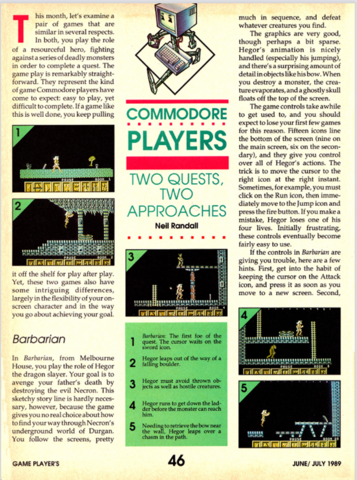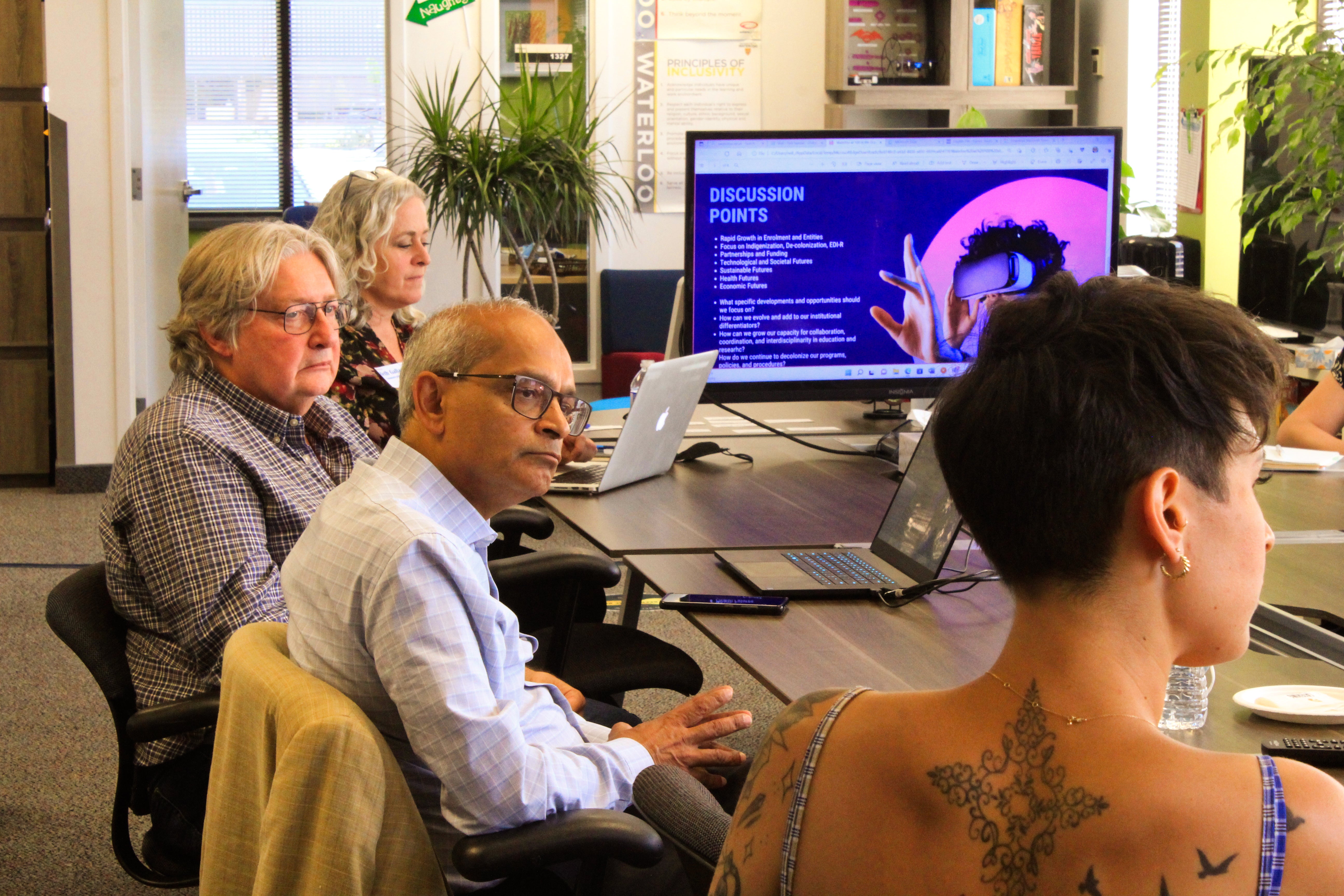
Dr. Neil Randall is an Associate Professor of English Language and Literature. He promotes interdisciplinary research by supporting collaborative initiatives, and establishing partnerships between academia, industry, and non-profit sectors. He is the co-designer of several historical board games.
Everyone associated with the Games Institute (GI) knows our Executive Director, Dr. Neil Randall, but how much do they really know about Neil? While it’s easy to get Neil to talk at length about the GI and its partners, projects, and researchers, it’s much harder to get him to talk about himself. This is despite many accomplishments during his 38-year career at the University of Waterloo. For example, as a games and technology journalist he wrote over 700 game and product reviews, and he wrote some of the first books ever published about the internet.
Neil received his master’s degree from the University of Waterloo in 1981 and his PhD at York University in 1985; both degrees in the field of Canadian literature. However, even as he was finishing his PhD dissertation, Neil already had his proverbial fingers in games and interactive technologies.
During the 80s, Neil published game books for tabletop role playing games (RPG) players, and wrote fantasy fiction books, including interactive choose-your-own-adventure-style novels. In 1984, he published his first review of Commodore64 war games in Compute!, an early computer magazine. From there, writing for magazines and newspapers quickly became Neil’s “secondary, if not primary, source of income”, and permanently linked him to “writing about games and computers in general.”

An excerpt of Dr. Randall’s Commodore64 review in Compute! Magazine.

The cover art for Octopussy. The front cover for Monsters of Myth & Legend.
Despite having his hands full at Waterloo, Neil kept writing about games and computing for newspapers and magazines; most notably PC Magazine, with then-readership of 1.2 million. Neil also wrote regular columns for Game Players magazine, The Globe and Mail, and many books about the then-nascent internet, online shopping, file sharing, affiliate marketing, etc.)
By the end of the 2000s, with an ever-growing portfolio of books, guides, and articles, Neil felt he should address what many saw as a central contradiction in his career: “I was a humanities prof who was writing about computers.” But, there were others like him: Dr. Karen Collins (then Associate Professor, Communication Arts), Dr. Stacey Scott (then Systems Design Engineering), and Dr. Chrysanne DiMarco (then Cheriton School of Computer Science).
Together, they received the approval of the UWaterloo Senate to open the Games Institute in May 2011. Part of what made, and continues to make, the GI so unique is that it was founded by researchers from such different backgrounds. While working in an interdisciplinary community is challenging, it creates unique – and often uncommon - networks of expertise.
Soon after the founding of the GI, Chrysanne, Karen, Neil and Stacey came up with the concept for IMMERSe (Interactive Multimodal Research Syndicate), a research network that would formally connect the GI with other similar institutes and centres as well as industry partners in the US and Canada. In 2012, the team secured $6.5 million in funding from the SSHRC Partnership Grant programme.
In 2014, the GI found its home in East Campus 1 gradually growing in membership and notoriety. Neil jokes that the three hardest things to get on any university campus are, in order, “number three is money, number two is space, and number one is parking.” Knowing that parking is a lost battle, and with GI space secured, Neil’s next challenge was to formally transform the GI from an Arts-based research centre to a cross-Faculty entity; the GI joined this elite group of institutes in 2017.
Outside of the day-to-day leadership of the Games Institute, Neil has continued to work on research collaborations with non-academic partners (industry and non-profit) via Mitacs projects and joint research endeavours with Electronic Arts, Deloitte, Scotiabank, Correctional Services Canada, Community Justice Initiative, the Violence-Evidence-Guidance-Assessment (VEGA) Family Violence group, and more.
We – in Waterloo International – have been delighted to be, with our friends in Warwick, co-conveners of this initiative. This is an outstanding opportunity for Waterloo to work with a valued international partner in a burgeoning area. Esports offers such great potential across multiple parts of Waterloo’s mission – learning, research, community – that it is little wonder that this initiative has brought together different parts of the campus in collaboration.
More recently, eSports has become a point of interest for Neil and he is now working on a trans-Atlantic exploration of collegiate esports to help grow the UW esports programs. Even more exciting, in 2022, the GI secured $50,000 of funding from the Ontario government for an esports scholarship program for Waterloo students.
In addition to partnerships, one of Neil’s goals as Executive Director has always been to create a state-of-the-art research infrastructure in the GI space by taking advantage of the Canada Foundation for Innovation (CFI) funding programs. And so, to complement existing CFI-funded labs from other GI faculty members, Neil secured four CFI grants over the last decade.
The Games Institute is now a much bigger and broader space and community: feminist design and social media, history and haptics, games and VR in healthcare, HCI and gender studies, and many more unusual combinations took the GI into directions Neil never imagined.
But what Neil did set out to do is “welcome people to bring in ideas and work that I simply wouldn’t have thought of. That was my goal from the very beginning. Build something that would help other people do research that I would have never guessed could happen.”
Neil concludes that looking to the future, “we are more than just the Games Institute. Now it’s a matter of asking, ‘how far can we go?’”

Dr. Neil Randall with UWaterloo President Vivek Goel meeting with GI faculty members.